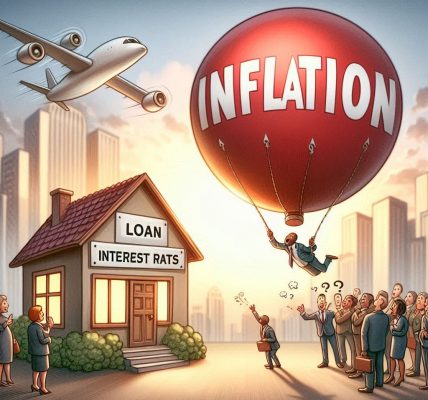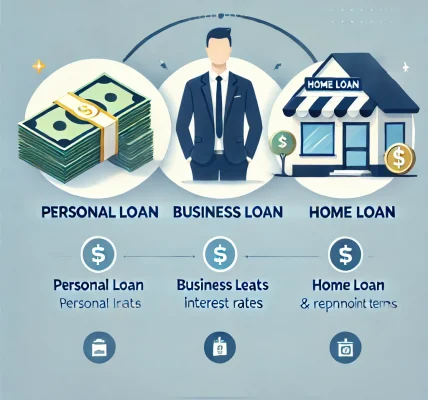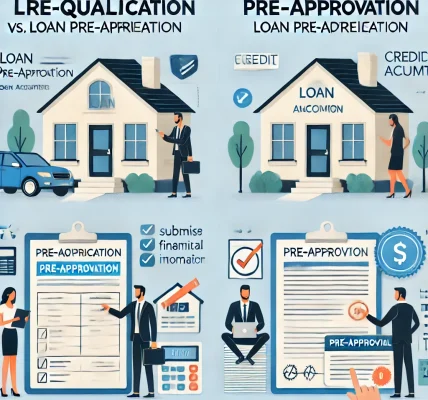Introduction
When applying for a loan, whether it’s a personal loan, home loan, or business loan, lenders categorize borrowers into two groups: salaried individuals and self-employed individuals. Loan policies differ significantly between these two categories due to variations in income stability, risk assessment, and financial documentation. Understanding these differences can help borrowers choose the right loan and improve their chances of approval.
This guide will explore the key distinctions in loan policies for salaried and self-employed individuals, factors influencing approvals, and tips to secure a loan successfully.
Key Differences in Loan Policies
Lenders assess salaried and self-employed individuals differently based on various factors, including income stability, documentation, interest rates, and repayment flexibility. Here’s a breakdown:
1. Income Stability and Risk Assessment
- Salaried Individuals: Considered low-risk borrowers due to stable monthly income and employer-backed job security.
- Self-Employed Individuals: Higher risk category due to variable income, business uncertainties, and market fluctuations.
2. Loan Eligibility Criteria
- Salaried Individuals:
- Typically require a steady job with at least 6 months to 2 years of employment.
- Minimum income requirement varies by lender.
- Higher chances of approval due to fixed salary.
- Self-Employed Individuals:
- Must show at least 2-3 years of stable business operations.
- Need to prove consistent income flow.
- Stricter scrutiny due to fluctuating earnings.
3. Income Proof and Documentation
- Salaried Individuals:
- Salary slips for the last 3-6 months.
- Bank statements (salary account) for 6 months.
- Employment verification letter or Form 16.
- Self-Employed Individuals:
- Income Tax Returns (ITR) for at least 2-3 years.
- Profit & Loss statement and balance sheets.
- Business registration documents.
- GST returns and bank statements for 12-24 months.
4. Loan Amount and Repayment Tenure
- Salaried Individuals:
- Loan amounts depend on salary and employer profile.
- Generally, higher loan eligibility due to stable income.
- Repayment tenure can range from 12 months to 30 years.
- Self-Employed Individuals:
- Loan amount depends on business revenue and profitability.
- Lenders may offer lower loan amounts due to income fluctuations.
- Shorter repayment tenure, especially for business loans.
5. Interest Rates and Loan Terms
- Salaried Individuals:
- Enjoy lower interest rates (starting from 6.5%-10% depending on the loan type).
- Fixed interest rate options available for stability.
- Self-Employed Individuals:
- Generally higher interest rates (8%-15% depending on risk assessment).
- Interest rates may be variable, depending on income consistency.
6. Processing Time and Approval Chances
- Salaried Individuals:
- Faster approval process (often within a few days).
- Automated risk assessment with minimal manual verification.
- Self-Employed Individuals:
- Longer approval process due to detailed financial evaluation.
- Stricter documentation verification.
7. Collateral and Loan Security
- Salaried Individuals:
- Often qualify for unsecured loans (like personal loans) due to job stability.
- Collateral may not be required for small loans.
- Self-Employed Individuals:
- More likely to be asked for collateral or guarantors.
- Business assets, property, or fixed deposits may be needed as security.
Factors Influencing Loan Approval for Salaried and Self-Employed Individuals
Several factors determine the chances of getting a loan approved. These include:
1. Credit Score
- A credit score of 700+ increases approval chances for both categories.
- Salaried individuals may get loans even with a slightly lower score.
- Self-employed borrowers must maintain a strong credit history to prove reliability.
2. Employment and Business Stability
- Salaried individuals should have at least 6 months to 1 year of continuous employment.
- Self-employed applicants must prove business profitability for 2-3 years.
3. Debt-to-Income Ratio (DTI)
- Lenders prefer DTI to be below 40-50%.
- Lower DTI improves eligibility for both groups.
4. Relationship with the Bank
- Existing customers of banks/NBFCs may get better loan terms.
- Self-employed individuals benefit from strong banking relationships.
Tips for Securing a Loan Successfully
Regardless of employment type, borrowers can increase their chances of approval with these strategies:
- Maintain a High Credit Score: Pay bills on time and reduce outstanding debts.
- Keep Financial Documents Updated: Ensure salary slips, ITR, and business financials are accurate and up to date.
- Choose a Loan with Favorable Terms: Compare different lenders for the best interest rates and flexible repayment options.
- Avoid Frequent Loan Applications: Too many loan inquiries can negatively impact credit scores.
- Consider Adding a Co-Applicant: Having a co-applicant with a stable income improves approval chances.
Conclusion
Salaried and self-employed individuals follow different loan policies due to variations in income stability and risk levels. While salaried individuals often have an easier approval process with lower interest rates, self-employed applicants need to present detailed financial records and maintain a strong credit profile.
By understanding these differences and preparing accordingly, borrowers can navigate the loan application process efficiently and secure loans that meet their financial needs. Always compare loan policies, read the terms carefully, and choose a lender that aligns with your repayment capacity and financial goals.




